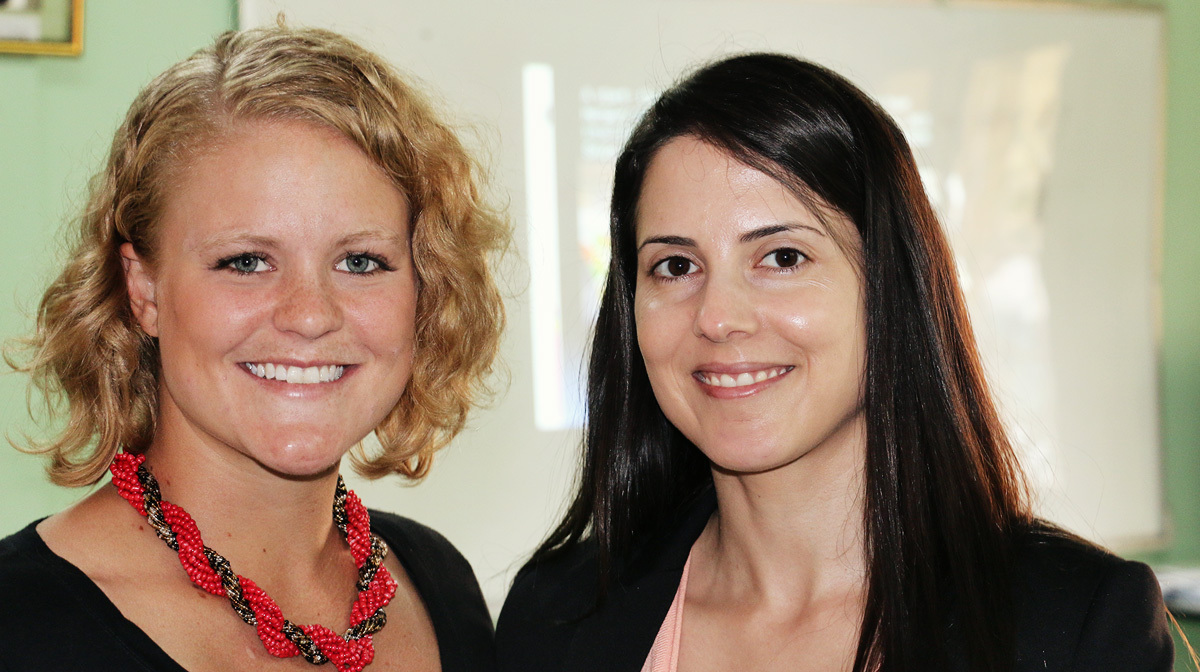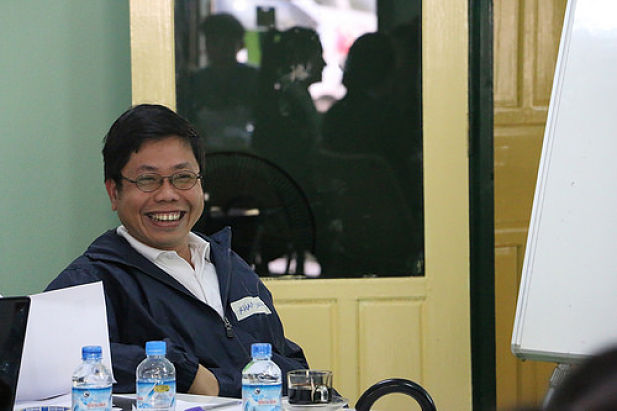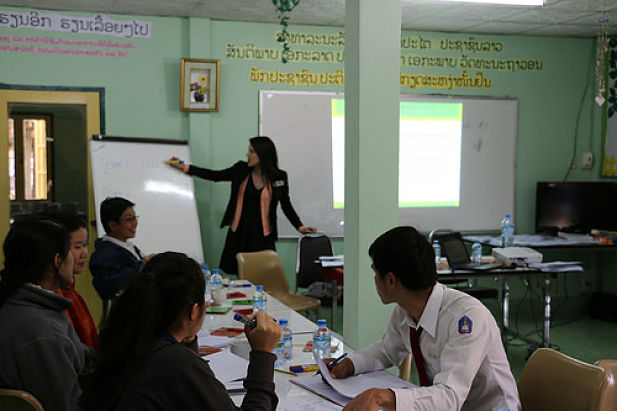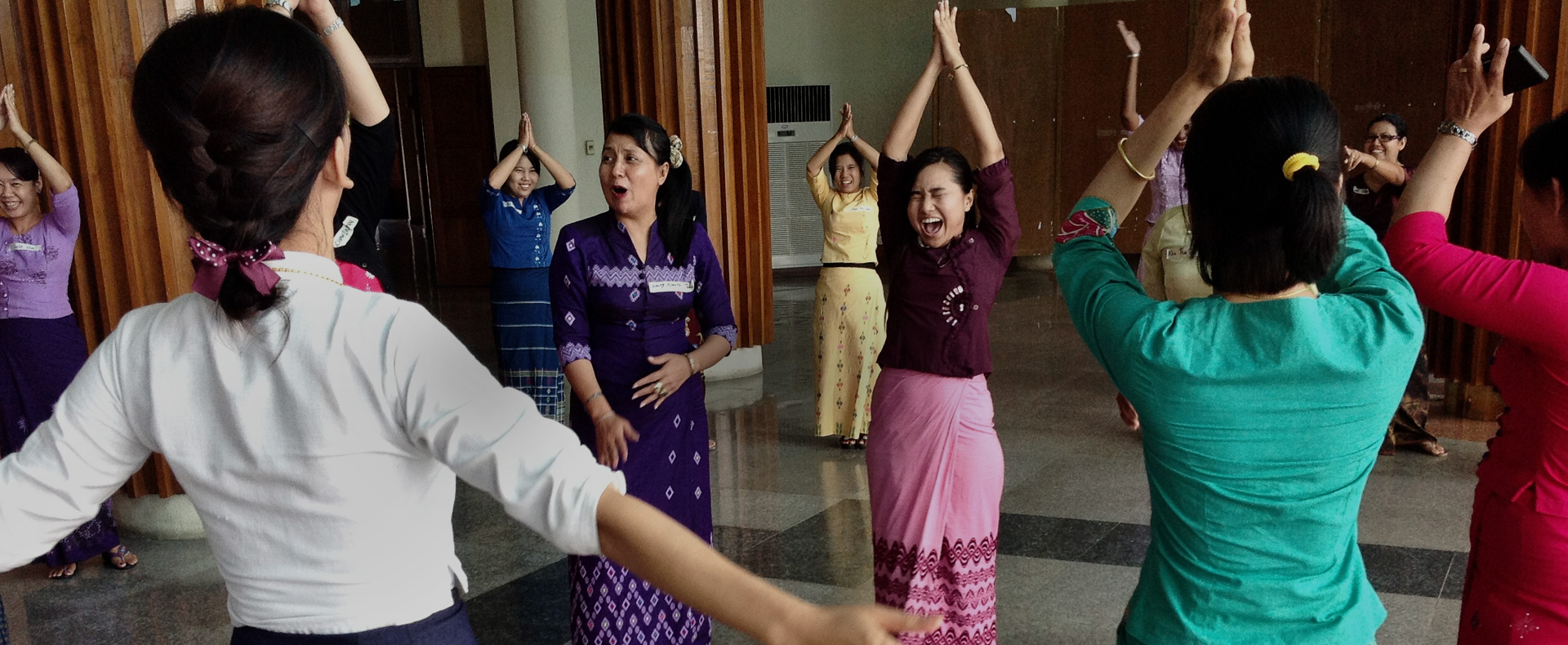Teaching on Lao time

Since July last year I have been involved in a project initiated by Bridges Across Borders Southeast Asia Community Legal Education Initiative (BABSEA CLE) to develop training materials on a number of different aspects of a lawyer's professional responsibility, access to justice and pro bono. The materials will be used to teach law students at universities across South East Asia, where such topics are often not part of the standard curriculum. The project team is comprised of lawyers from DLA Piper, Herbert Smith Freehills, and the Australian Government Solicitor, in addition to BABSEA CLE staff.
We have developed ten modules to date, each one designed to be taught over two hours. The modules have been developed using a clinical education model, which means that the sessions are highly interactive. We hope that lecturers in the local universities will eventually teach the materials as part of their standard curricula. However, before that can happen we need to test the materials at workshops to obtain the feedback from the lecturers and the students, and ensure that the materials work in the local context. We have already had several of these testing workshops and I was lucky enough to be asked to attend the latest workshop in Laos in January 2014. The workshop was run over two days at the National University of Laos in Vientiane. Participants were comprised of law students in their penultimate year of studies, law lecturers and some members of the Bar Association of Laos.
Delivering training to lawyers is something that I do regularly as part of my role at DLA Piper. However, teaching law students seemed like a completely new challenge. On top of that we were going to need to use an interpreter for the whole workshop. I wasn’t sure how they would respond to me and what it would be like using an interpreter. But I thought it would be a great experience and I was really excited when I found out that one of the sessions we would be teaching was on the Duty of Confidentiality which was the module I helped to develop! Getting to see how the module I had helped write worked in practice was something I was really looking forward to.
I arrived in Vientiane a day before the workshop started, so I had a bit of time to experience the city and local culture. Vientiane is more of a sleepy village than the typical capital city, but underneath the laid back exterior it’s a hive of activity and the local population work extremely hard.
Our first day of the workshop started at 7:30 am which was when we were supposed to be picked up from the hotel. But after a lot of waiting and making a few phone calls, we were eventually picked up a bit after 8 am. Nobody however, seemed too concerned about this. I was soon to learn that this is called being on "Lao time". It seemed that being on time was optional, but eventually everything that needs to get done would.

Our interpreter, Khamsouk, made us feel at ease immediately and gave us some good pointers on how we should use him when we were running the workshops. Despite the language barrier, the students answered and asked questions enthusiastically and were clearly eager to learn as much as they could.
As we progressed through the materials, it was interesting to see the students start to challenge some of their own thoughts about ethics and the interplay between their own personal morals and views as opposed to the professional responsibilities of a lawyer.
The students also helped us to see some concepts in a different light. For example when we taught the pro bono module and were trying to draw out of the students why a lawyer would want to do pro bono and why it should be a lawyer's responsibility to provide pro bono services throughout their careers, one of the students said "That’s a good concept in theory but, what about if the lawyer has less money than the client? Quite often in Laos the lawyer will be very poor themselves." This is a good point and one that I admit I hadn’t really thought of. This is a real challenge in not only South East Asia but in many countries where there is a high percentage of people living below the poverty line. This one moment really reminded me that I, too, view ethical issues through a cultural lens.
Over the two days, I also facilitated sessions on the Lawyer and Client Relationship and Access to Justice. The BABSEA CLE staff and Professor Don Peters, visiting from the US, also delivered a session on Pro Bono.

To be selected to attend the workshop, the students had to make an application and attend an interview. Perhaps this is why the students seem to take it so seriously, but from the feedback we received at the end of the session, I think their willingness to participate was due to the fact that they really saw value in the topics we were teaching.
Supporting Pro Bono and Legal Ethics in Southeast Asia
